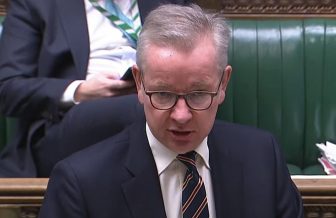
Housing secretary Michael Gove yesterday unveiled the long-awaited Leasehold and Freehold Reform Bill (LFRB) in parliament, with a view to improving the rights, powers and protections leaseholders in England and Wales have over their homes.
A key part of the government’s long-term plan for housing, the bill will make it easier and cheaper for leaseholders to buy their freehold, increase standard lease extension terms to 990 years for houses and flats, and provide greater transparency over service charges. The Bill will also rebalance the legal costs regime and remove barriers for leaseholders to challenge their landlords’ unreasonable charges at Tribunal.
The new powers will also help more leaseholders take over the management of their property if they wish to, instead of being stuck with the freeholder’s management choice, and we will make this process cheaper for leaseholders.
The government will also bring forward further reforms which will extend access to redress schemes and make it easier and cheaper to get the information needed to sell a leasehold home.
Gove said: “People work hard to own a home. But for far too long too many have been denied the full benefits of ownership through the unfair and outdated leasehold system.
“That’s why liberating leaseholders forms a vital part of the government’s long-term plan for housing.
“So today marks a landmark moment for millions of leaseholders across the country, as we unveil laws to deliver significant new rights and protections, slash unfair costs and crack down on exploitation.”
The bill addresses one of the longest-term challenges that the country faces – fairness in the housing market. The measures in the Bill will put the country on the right path for the future by addressing the historic imbalances between leaseholder and freeholder to give homeowners a fairer deal, greater protections, and more rights.
The government says the bill will strengthen existing, and introduce new, consumer rights for homeowners by:
+ Making it cheaper and easier for people to extend their lease or buy their freehold so leaseholders pay less to have more security in their home.
+ Increasing the standard lease extension term to 990 years for houses and flats (up from 50 years in houses and 90 years in flats), so leaseholders can enjoy secure ownership without the hassle and expense of future lease extensions.
+ Giving leaseholders greater transparency over their service charges by making freeholders or managing agents issue bills in a standardised format that can be more easily scrutinised and challenged.
+ Making it easier and cheaper for leaseholders to take over management of their building, allowing them to appoint the managing agent of their choice.
+ Making it cheaper for leaseholders to exercise their enfranchisement rights as they will no longer have to pay their freeholder’s costs when making a claim.
+ Extending access to redress schemes for leaseholders to challenge poor practice. The government will require freeholders, who manage their building directly, to belong to a redress scheme so leaseholders can challenge them if needed – managing agents are already required to belong to a scheme.
+ Making buying or selling a leasehold property quicker and easier by setting a maximum time and fee that for home buying and selling information.
+ Granting homeowners on private and mixed tenure estates comprehensive rights of redress, so they receive more information about what charges they pay, and the ability to challenge how reasonable they are.
The government will also give greater rights to those in mixed-use blocks of flats. Currently leaseholders in these buildings are barred from taking over the management of the site or buying its freehold if more than 25% of its floor space is commercial – such as shops or offices on the ground floor. The government will now increase the floor space limit to 50 per cent, so that more leaseholders can access the Right to Manage or the right to a collective enfranchisement.
It will also level up the rights of residents of freehold estates by granting freehold homeowners on private and mixed tenure estates the same rights of redress as leaseholders and equivalent rights to transparency over their estate charges.
The Bill will also rebalance the housing system for leaseholders by:
+ Scrapping the presumption that leaseholders pay their freeholders’ legal costs when challenging poor practice that currently acts as a deterrent when leaseholders want to challenge their service charges.
+ Banning opaque and excessive buildings insurance commissions for freeholders and managing agents, replacing these with transparent and fair handling fees.
+ Banning the sale of new leasehold houses so that, other than in exceptional circumstances, every new house in England and Wales will be freehold from the outset.
+ Removing the requirement for a new leaseholder to have owned their house or flat for two years before they can extend their lease or buy their freehold.
The bill brought to parliament yesterday forms part of the government’s long-term plan for housing and delivers the government’s manifesto commitments on leasehold reform. As announced in the King’s Speech, the government will introduce some measures at first reading and others as amendments as the bill makes its way through Parliament to deliver on the full range of commitments set out above.
These will include measures to amend the Building Safety Act 2022 to make it easier to ensure that those who caused building-safety defects in enfranchised buildings are made to pay, and that the leaseholder protections are not unfairly weighted against those who own properties jointly.
The government is also already consulting on options to cap ground rents for existing leases that will protect leaseholders from facing unregulated ground rents for no service in return. The consultation closes on 21st December and the government will respond shortly afterwards.


Comments are closed.